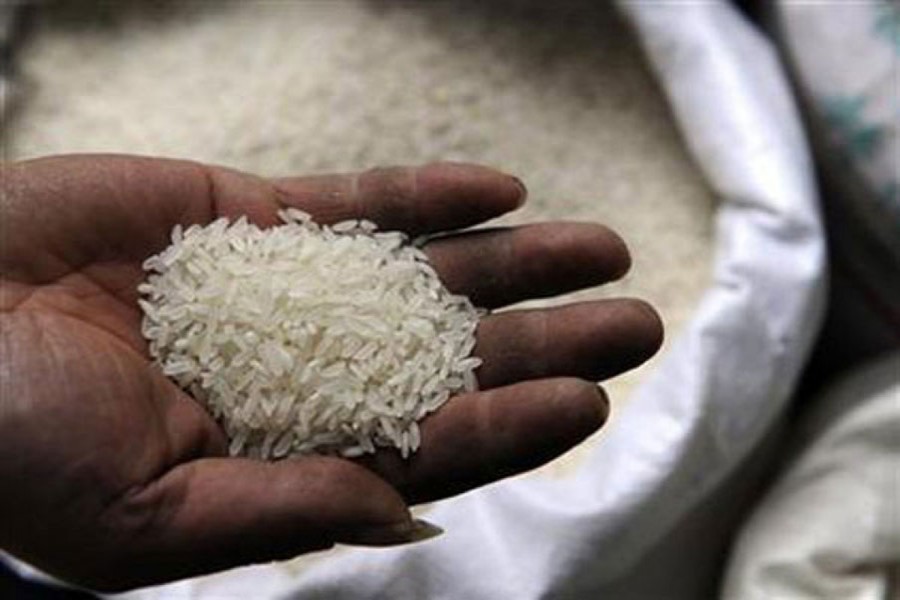As the rice price still remains high, the poor people face hardship with their limited incomes. With such a rise in rice prices, the cost of living for the general masses is also increasing.
Despite repeated government efforts, rice market is yet to be stabilised. Millers and importers shift blame on each other for such hike in peak season of the staple. With the aim of stabilising the rice market, two new cabinet ministers at a recent meeting pledged to bring rice prices under common man's reach within seven days. However, one week has already gone, there is no sign of a fall in rice prices in the city's kitchen markets.
Seasonal coarse rice Swarna and other thick varieties still sell at Tk 40-44 and medium quality Brridhan-28 and 29 at Tk 50-54. Even finer variety Miniket and Jeerashail now sell at Tk 55-66 and Najirshail at Tk 62-72 a kg. The prices of all rice varieties increased by Tk 3-5 a kg in the past two weeks.
Rice prices are rising at a time when farmers had a good yield in recent times. Aman harvest registered an all-time high production last year. Aman growers sold paddy at three-year low rate from mid-November to mid-December during the last calendar year.
Insiders say a syndicate of importers and traders are responsible for such high prices. They have allegedly hoarded large quantities of paddy only to manipulate the market by raising prices.
Apart from millers, the government should monitor the storage of big importers and their affiliated traders to find out the key reason behind this hike. Big millers and their allied traders hoarded most of the Aman paddy within last December and are raising the prices of both paddy and rice for lack of an alternative channel.
Since the country needs to import rice from abroad to tide over the shortfall in production, local importers allegedly buy the poorest quality of rice at the highest prices in the world. On the other hand, it has been observed that rice prices have consistently been rising globally for the last one year.
A kg of a coarse variety of rice is now being sold at Tk 48 in Bangladesh, setting a new record in the country's economy. The price of rice has increased by 11 per cent in the past month and it has doubled in the past one year. Many say this is due to wrong policies and for not taking proper steps in time. Vietnam is now selling rice at the cheapest rates in the world. The price of a kg of rice is Tk 33.62 there. In neighbouring India, the price of a kg of rice is Tk 34, Tk 37.81 in Thailand, and Tk 38. 54 in Pakistan.
Compared to the international rice market, rice is being sold at the highest price in Bangladesh. But, it is also true that rice prices are on the rise globally as well. During the recent past, rice prices have risen in all countries except Vietnam. Thailand has increased rice prices by 5.77 per cent, while India has raised prices by 1.4 per cent, and Pakistan by 2.0 per cent.
The rice market was scheduled to have steadied as the government had cut import duty on rice from 28 per cent to 2.0 per cent. Not only did it make it easier for the private sector to import rice, but the government itself also began signing deals with various countries to procure rice. Rice is being imported both by the private traders and the government. Yet all efforts are going down the drains and the rice prices continue to rise.
The government has also failed in its grain procurement drive. The stock of rice did not rise up to the mark in the government go-downs. If the government food stock falls below 600,000 tonnes, this is bound to leave a negative impact on the overall market scenario. It is not a good sign that the price of all rice varieties should increase in the market at a time when the Boro harvest is not over yet.
Rice is such a commodity that when its price goes up, it is the poor working class that suffers the most. Necessary measures must be taken to ensure that the prices do not increase. Rather than import, stress should be laid on increasing production and ensuring sufficient stock in the government go-downs.


